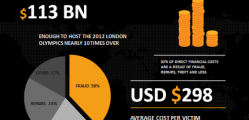In this day and age, without even basic internet access, it can be difficult to know what’s going on in the world. Also, communication with family, friends and colleagues, access to information for work and even peripheral things like finding a job or getting the Christmas shopping become far trickier. Fortunately, in some countries, the vast majority can access the web in some form.
According to the ICT Development Index, compiled by the UN, eight out of the 10 most well-connected nations to the web are in Europe, six of them members of the European Union. Among the elite are Finland, Sweden, Denmark, the Netherlands, Luxembourg and United Kingdom, but not all member states have such a good infrastructure to deliver broadband access.
Eastern blocked
Falling somewhere behind their continental neighbours in terms of access to broadband are Poland, Latvia and Slovenia. All three nations only joined the EU recently, but compared to countries to the north and west, they’re lagging behind. In Latvia, only 83% of households are able to receive a connection. 74% is the figure for Slovenia while in Poland it’s even lower at just 69%.
These figures can be explained twofold. The first reason is cost – all three nations are among the poorer member states and as a result don’t have the money to fund the mass rollout of broadband links to more rural outposts. The second is that some people in these countries cannot afford to pay for a connection, although living standards in Slovenia are almost in line with those in Italy.
Satellite alternative
It may seem absurd, but it could be possible for countries such as Poland to improve internet access without installing fibre optic cables at great expense. As suggested by Broadband For All, a new initiative sponsored by the EU, it could be possible for people in Poland , Slovenia and other parts of the Union where access is prohibited one way or another to receive satellite broadband.
Irrespective of location, it’s possible for satellite broadband to work just about anywhere in the country. It could be the easiest way to ensure that all EU citizens are able to access the web without worrying about whether or not they can receive a decent signal. Satellite broadband could be the missing piece in the continent’s internet puzzle, but it will take a fair bit of work to make it happen.




Leave a Reply